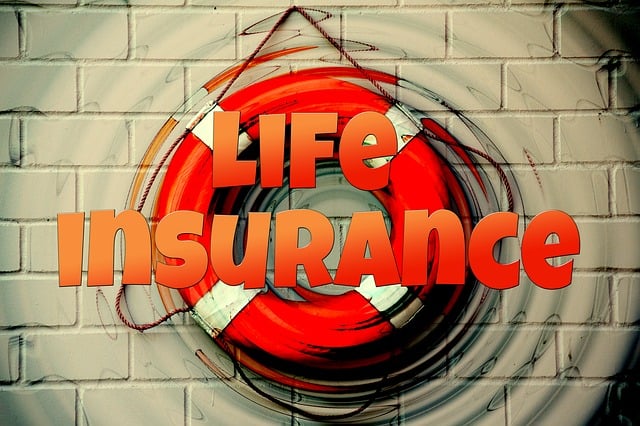Before searching for auto insurance, evaluate your vehicle type, driving history, financial situation, location risks, personal responsibilities, and available plan types. Weigh these factors to tailor coverage, compare plans based on driving record, vehicle details, budget, and desired add-ons. Assess insurer reputation, financial health, customer reviews, and ratings for informed decisions. Regularly review and update your policy to match evolving needs, saving money while maintaining adequate protection.
Choosing the right auto insurance policy is a crucial step in ensuring financial protection on the road. Understanding your unique needs, comparing various coverage options, and evaluating insurer reputation are key to making an informed decision.
This guide will walk you through each essential step. From assessing risk factors and exploring policy types to reviewing customer feedback and understanding claims processes, you’ll discover practical tips to select the best Car insurance policy tailored to your circumstances.
Understand Your Insurance Needs: Factors to Consider Before Buying

Before even beginning your search for an auto insurance policy, take some time to understand your specific needs and circumstances. This process involves evaluating several factors that will influence your decision-making. Firstly, consider the type of vehicle(s) you own—different cars may require distinct coverage levels. Additionally, your driving history plays a significant role; safe drivers often qualify for lower premiums. Assess your financial situation to determine an affordable deductible and coverage amount that aligns with your budget. It’s also crucial to evaluate the specific risks associated with your location, such as high crime rates or severe weather patterns, as these can impact both policy costs and coverage options.
Other considerations include personal responsibilities like whether you need liability coverage for multiple vehicles or if you have dependents who require additional protection. Additionally, understand the different types of insurance plans available—comprehensive, collision, liability, etc.—and what each covers to ensure you’re adequately protected. By carefully weighing these aspects, you’ll be better equipped to navigate the process of choosing the best car insurance policy tailored to your needs.
Research Different Types of Car Insurance Policies

When learning how to pick the best car insurance policy, understanding different types is a crucial first step. There are primarily two main categories: liability and comprehensive. Liability coverage protects against damages caused to others in an accident, while comprehensive insurance steps in to cover repairs or replacement of your own vehicle. Within these, policies can vary significantly. For instance, collision insurance specifically covers damage from accidents, whereas personal injury protection (PIP) focuses on medical bills for you and your passengers, regardless of fault.
Researching these options allows you to tailor your coverage to specific needs. Consider factors like your driving history, vehicle make and model, age, and location. Some policies may offer discounts for safe drivers, good students, or bundling with home insurance. By weighing these elements, you can effectively compare car insurance plans and choose the one that offers the right balance of protection at a price that fits your budget.
Compare Coverage Options and Limits

When shopping for auto insurance, understanding the coverage options and limits is crucial in how to choose the best car insurance policy. Don’t just accept the first quote you see; take time to compare different policies’ offerings. Every insurance plan varies in what it covers, from liability to comprehensive and collision coverage. Assess your needs based on factors like your driving record, vehicle type, and budget. A good rule of thumb is to opt for higher limits than required by law to ensure adequate protection against potential losses.
Look closely at exclusions and deductibles as well. Exclusions detail what isn’t covered under your policy, while deductibles are the amount you pay out-of-pocket before insurance kicks in. Understanding these elements will help tailor your policy to your specific needs and avoid surprises when making claims. By thoroughly comparing coverage options and limits, you can make an informed decision on how to select the ideal car insurance policy for your circumstances.
Evaluate the Reputation and Financial Stability of Insurers

When shopping for a car insurance policy, evaluating an insurer’s reputation and financial stability is a crucial step in making an informed decision. Look for companies with strong customer satisfaction ratings and positive reviews from independent agencies. These indicators show that the insurer consistently provides good service and handles claims efficiently.
Additionally, assessing their financial strength through credit ratings or reports from reputable agencies ensures they can fulfill their long-term obligations to policyholders. A financially stable insurer is less likely to face unexpected issues or even bankruptcy, providing peace of mind that your coverage will be there when you need it most.
Check Customer Reviews and Ratings

When researching auto insurance providers, customer reviews and ratings are invaluable resources. They offer a glimpse into the real-world experiences of other policyholders, providing insights into the quality of service, claims handling, and overall satisfaction. Reputable insurance companies tend to have positive reviews, reflecting their commitment to excellent customer service and fair practices.
Paying attention to these reviews can help you make an informed decision when choosing the best car insurance policy. Look for consistent praise regarding prompt claims processing, friendly agents, competitive pricing, and a range of coverage options. Negative reviews may highlight issues with customer service or confusing policy terms, indicating potential red flags. By carefully considering customer feedback, you can narrow down your options and select an insurer that aligns with your expectations.
Assess Additional Services and Perks Offered by Insurance Plans

When evaluating auto insurance policies, it’s crucial to assess the additional services and perks each plan offers. Beyond core coverage for liability, collision, and comprehensive damages, look for features that align with your needs. Some insurers provide roadside assistance, rental car coverage during repairs, or discount programs for safe driving, good students, or multiple vehicles. These extras can significantly enhance your overall experience and protection.
Consider your personal situation and priorities when weighing these perks. For instance, if you frequently drive long distances, roadside assistance could be invaluable. Similarly, if you have young drivers at home, a policy with student discounts or safe driving incentives might save you money. Compare these offerings to find the best car insurance policy that offers both adequate protection and valuable add-ons tailored to your specific circumstances.
Understand Deductibles, Premiums, and Claims Process

When comparing car insurance policies, understanding key components like deductibles, premiums, and claims process is crucial for making an informed decision on how to choose the best car insurance policy. Deductibles represent the amount you agree to pay out-of-pocket before your insurance kicks in, with higher deductibles often leading to lower monthly premiums. Premiums, on the other hand, are the cost of your insurance coverage and can vary based on factors like driving history, vehicle type, and coverage levels.
The claims process is another vital consideration. It outlines how you file a claim, what steps are involved, and who covers what costs. Efficient and straightforward claims processes can make a significant difference in terms of stress and financial outlay during an accident or other unforeseen event. Compare these elements across different policies to ensure they align with your needs and budget while providing adequate protection when needed.
Consider Your Driving History and Risk Profile

When it comes to choosing the right auto insurance policy, understanding your driving history and risk profile is a crucial first step. Your insurance company will assess your past driving record to determine your premium rates. A clean driving history generally translates to lower premiums, as you pose less of a risk to other drivers and insurance providers. Conversely, moving violations, accidents, or claims can significantly impact your costs.
Your risk profile also encompasses various factors beyond your driving record. Consider your age, gender, location, and lifestyle choices. Younger or male drivers often face higher premiums due to statistical risks associated with these demographics. Urban areas with higher accident rates may result in pricier policies. Additionally, if you have a high-performance vehicle or engage in risky behaviors like frequent long-distance travel, insurance companies might charge more to cover potential losses.
Regularly Review and Update Your Policy as Necessary

When it comes to how to choose the best car insurance policy, regularly reviewing and updating your coverage is a crucial step that many overlook. As your life, vehicle, and driving habits evolve, so should your insurance needs. This means reassessing your policy at least once a year or whenever there are significant changes in your circumstances. For instance, if you’ve recently gotten married, had a child, or purchased a new car, these events could impact the level of coverage you require. Similarly, if you’ve moved to a different area with varying driving conditions, your insurance provider should be adjusted accordingly.
By regularly reviewing your policy, you can ensure that you’re not paying for unnecessary coverage (leading to savings) and that you have adequate protection in case of unforeseen events. This proactive approach allows you to navigate how to choose the best car insurance policy effectively, maintaining both peace of mind and financial security on the road.
